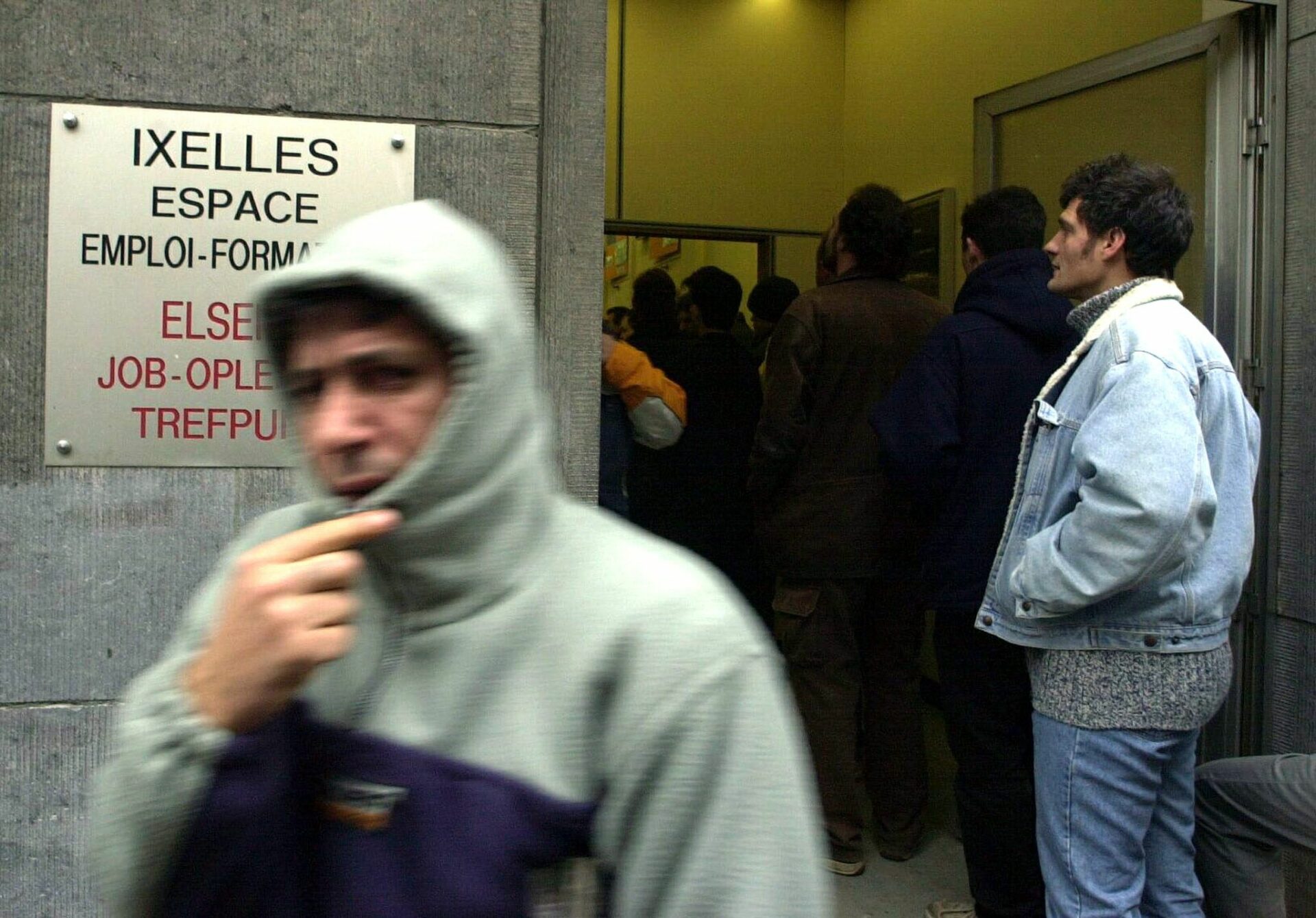Belgium's expert council on employment has called for the incoming government to clamp down on unlimited unemployment benefits, as the State grapples with one of the lowest employment rates in the EU combined with acute labour shortages.
The latest annual report on the labour market, published by the High Council on Employment this week, highlights that Belgium's employment rate (72.1% in 2023) lags behind the European average of 75.3%.
The report also notes that in terms of the share of unemployed people who have been out of work for more than a year (the "long term unemployed"), Belgium is also an outlier. EU labour force survey figures from 2022 show that 42.1% of unemployed people in Belgium are long-term unemployed, compared to 33.6% in Germany, 30.6% in Luxembourg, 29.5% in France, and just 18% in the Netherlands.
The Belgian employment expert council highlights a "glaring" disparity in the number of people working in the State's different regions, with Flanders consistently performing better than Wallonia and Brussels.
At 76.8%, the employment rate in Flanders is more than 10 percentage points higher than in the other two regions, and in 2023 the unemployment rate was 3.3% in Flanders, compared with 8.2% in Wallonia and 10.7% in Brussels.
Low employment but lots of vacancies
Alongside a relatively low employment rate, Belgium is also experiencing labour shortages with recruitment difficulties most marked in Flanders.
Nationally the job vacancy rate remains high, at 4.4% in the first quarter of 2024 (equating to about 185,000 open positions). In Flanders, the vacancy rate stood at 4.8% in the first quarter of the year, compared to 4% in Brussels and 3.6% in Wallonia.
The high number of unfilled positions could be explained by generally low participation in the labour market. But council experts note that Belgium's working population is also ageing, and a growing proportion of workers are nearing retirement (or early retirement) age.
The report also notes that employers are struggling to hire due to mismatches between the skills required and candidate profiles. To compound the challenge, relatively few unemployed people in Belgium cross the language border to find work (despite the efforts of regional public employment services).
Belgian labour market resilient through crises
Council experts say that Belgium's labour market has been "resilient" through crises like the pandemic and spiralling inflation, as net job creation reached "unprecedented levels" amounting to 100,000 new roles created across 2021 and 2022. In 2023, net job creation across the country returned to the historic average of around 43,000.
However, despite robust growth, low labour market participation remains Belgium's "main weakness". The report adds that it is "imperative" for Belgium to raise its employment rate if the economy is to proposer and help meet the costs of the country's ageing population.
Belgium's Federal Committee on Ageing has recently flagged that costs associated with the country's ageing population (such as increased spending on pensions and healthcare) are set to be "particularly high" between now and 2050.
As participation rates are particularly low among "vulnerable groups" (people with few qualifications, those of non-European origin, the youngest aged under 25 and the oldest aged 60 and over), the employment council notes that integrating these groups into the labour market remains a "major challenge" for the Belgian economy and regional labour markets.
Tackling 'unlimited' unemployment benefits
Of the many recommendations in the report, the council of experts suggests that the incoming government could "improve" the duration of Belgium's unemployment benefits so that people who are not (or are no longer) looking for work "should not be dependent on it".
As noted by an OECD report in 2020, the Belgian unemployment benefits system has "become the subject of an intense policy debate in recent years". While it provides good protection against income losses during joblessness, it has "raised concerns about its ability to maintain strong work incentives during unemployment".
Furthermore, Belgium is the only OECD country to offer income supports for unemployed people with no time limit and means testing after a certain period. Those who become unemployed in Belgium are at first entitled to 65% of their previous income, currently subject to an upper ceiling of €3,365.16 per month.

A queue at the unemployment office of Ixelles, January 2002. Credit: Belga
As time goes on, unemployment benefits gradually reduce and decouple from previous earnings; after four years recipients of unemployment are put on one of three minimum flat rates, depending on their family status. Belgium's National Employment Office makes daily allowance payments six days per week (with no payments on Sundays).
The flat rates are subject to change through automatic indexation but are currently: €66.89 per day for cohabitants with family responsibilities, €54.21 per day for single people, and €28.13 per day for cohabitants without family responsibilities.
There is no defined end date to unemployment benefits in Belgium, contrasting with neighbours France (maximum of 18 to 27 months depending on age), Germany (offered for 12 months at most or up to 24 months for older people), The Netherlands (maximum duration of 24 months) and Luxembourg (only available for up to 365 days in a 24 month period).
The High Council on Employment noted that the Belgian unemployment system is an insurance scheme to guarantee an income for jobseekers, "not an assistance scheme". However, it also warned that any reform to the duration of unemployment benefits "could under no circumstances lead to an increase in the risk of poverty for those affected".
Other recommendations
The council also said that employment traps should be closed. These disincentivise people to take up paid work when the social welfare supports outweigh the income they would earn.
The report also pointed out the potential impacts of wage indexation on employment in Belgium. It highlighted that as companies are obliged to pay higher wages in times of inflation, they are more likely to try and cut down their total number of staff by finding less labour-intensive means of operating, or may be discouraged from investing in Belgium altogether.
The council said this underlines the "importance of sectoral negotiations" on the topics of pay, working time and working conditions, but added that the existence of a uniform national wage standard limits the scope of negotiations.


